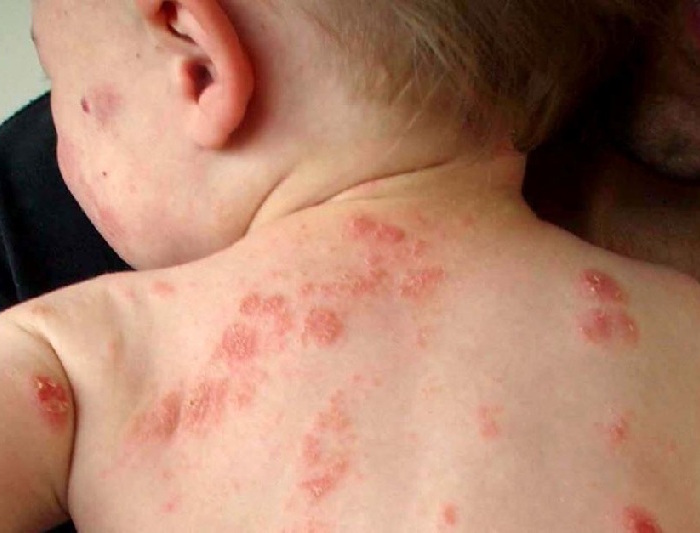 Infants whose mothers had a higher level of a particular type of vitamin B during pregnancy have a lower risk of eczema at age 12 months, new Southampton research has shown.
Infants whose mothers had a higher level of a particular type of vitamin B during pregnancy have a lower risk of eczema at age 12 months, new Southampton research has shown.
The study from the Medical Research Council Lifecourse Epidemiology Unit, University of Southampton, is the first to link maternal serum levels of nicotinamide, a naturally occurring vitamin, and related metabolites to the risk of atopic eczema in the child.
The researchers believe the findings support the concept that eczema partly originates as a baby develops in the womb and could reveal ways of reducing the risk of the skin condition.
Dr Sarah El-Heis, the study’s lead researcher from the University of Southampton, comments: “Nicotinamide cream has been used in the treatment of eczema but the link between the mother’s levels of nicotinamide during pregnancy and the offspring’s risk of atopic eczema has not been previously studied.. The findings point to potentially modifiable influences on this common and distressing condition.”
Nicotinamide is a form of vitamin B3. Its level is maintained through intake of foods such as fish, meat, chicken, mushrooms, nuts and coffee as well as tryptophan, an amino acid found in most proteins. Nicotinamide and related nutrients are important for the body’s immune responses and energy metabolism.
The research, published in Clinical and Experimental Allergy, assessed the amount of nicotinamide and related tryptophan metabolites during pregnancy in 497 women that took part in the Southampton Women’s Survey. The rates of eczema in their children at ages 6 and 12 months was studied.
Results showed that offspring of mothers with higher levels of nicotinamide had a 30 per cent lower chance of developing atopic eczema at 12 months. There was an even stronger association with higher levels of anthranilic acid, a tryptophan metabolite.
Nicotinamide can improve the overall structure, moisture and elasticity of skin and therefore could potentially alter the disease processes associated with eczema, the researchers say. The study showed a gradual association between higher maternal nicotinamide and anthranilic acid levels and a lower risk of atopic eczema, suggesting that the development of eczema is not simply prevented by the presence of these nutrients.
Professor Keith Godfrey, Director of the NIHR Southampton Biomedical Research Centre in Nutrition, added: “More research is needed to investigate this interesting association, but the findings are further evidence of the potential benefits of eating a healthy balanced diet during pregnancy.”
- S. El-Heis, S. R. Crozier, S. M. Robinson, N. C. Harvey, C. Cooper, H. M. Inskip, K. M. Godfrey. Higher maternal serum concentrations of nicotinamide and related metabolites in late pregnancy are associated with a lower risk of offspring atopic eczema at age 12 months. Clinical & Experimental Allergy, 2016; DOI: 10.1111/cea.12782














